


Throughout the centuries, Christianity and the Olympic Games have had an ambivalent relationship. For good reasons. But today Christians have come to see major sports gatherings as God-given opportunities for evangelism.
.jpg)
The challenges of secularisation, disengagement, and abandonment of religious practice are putting increasing pressure on the Roman Catholic Church right here in the eternal city. Rome is still religious in its “hardware” but less and less so in its “software”.
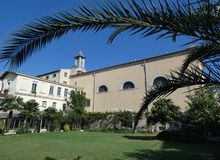
Two gunmen stormed Roman Catholic Santa Maria church in Istanbul during Sunday mass. It is the first time the Islamic terrorist group targets a place of worship in Turkey.
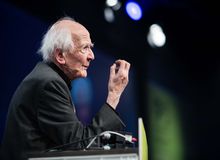
Bauman’s attraction to Pope Francis shows how disillusioned post-Marxist intellectuals find in Pope Francis a figure who instills hope in the general dullness.
Cropped(1).jpg)
With a "declaration" of high hierarchical value, Roman Catholicism is now officially in favor of blessing gay unions, as are many liberal Protestant churches around the world.
.jpg)
The new official document “broadens its classical understanding” to “include” new kinds of couples while maintaining “the perennial teaching on marriage”.
.jpg)
According to Francis, theology must be “fundamentally contextual” and no longer start from “first principles.” It must translate into a “culture of dialogue” with all and no longer think of itself as only lecturing to the world, religions, and others.
.jpg)
The Italian Evangelical Alliance says the “Together 2023” event with Pope Francis and other heads of Christian confessions was “crossing a line”. They demand “a public discussion of the whole of World Evangelical Alliance’s constituency” on ecumenism.
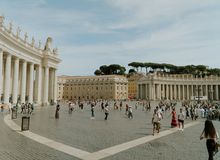
Francis thinks of his pontificate as a “pastoral” attempt at building bridges instead of creating walls with the whole world, leaving doctrinal issues aside.
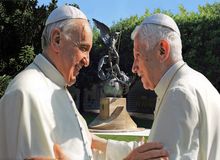
Benedict XVI died at the end of 2022, but on July 1st, his shadow receded further from the Vatican.
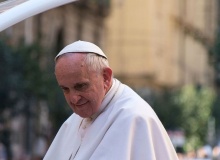
A decade later, Francis still faces unresolved challenges. “As a good Jesuit, he resisted making decisions so far”, says evangelical theologian in Rome, Leonardo De Chirico.
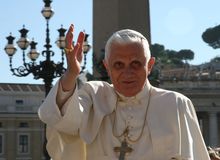
Ratzinger was concerned that Luther’s interpretation of the Christian ministry as mainly characterized by preaching, prayer, and pastoral care ware becoming widespread in Catholic circles.
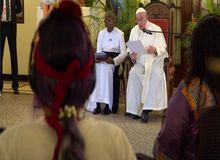
Congolese Christians are sceptical about the humanist statements made by Pope Francis during his official visit to a country facing a serious conflict.
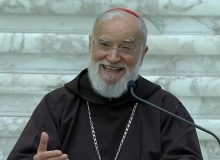
In a nutshell, according to the cardinal, all human beings will be saved by Christ, with or without faith in Christ.
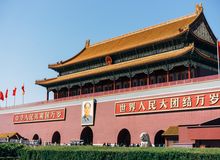
The agreement on the appointment of bishops will be extended two years. “The price to be paid is immense because the Catholic Church renounces to its independence”.
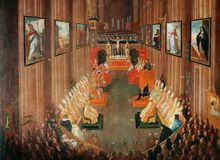
The first results of the “synodal process” in European dioceses are attacks on the Tridentine paradigm.
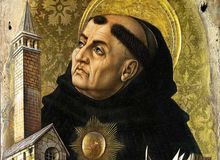
In recent years, we have witnessed a growing fascination with Thomas Aquinas and Thomism by evangelical theologians.
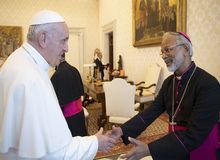
The history of the Roman Catholic conclaves indicates that electoral majorities do not predictably follow in the way they were formed, but can be constructed in an unexpected way.
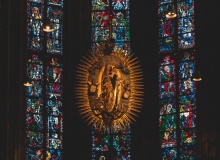
Rome fears that the pendulum of Catholicity breaks the framework of Romanism.
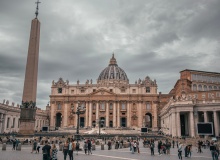
The kind of “evangelization” the Pope is advocating for in Praedicate Evangelium is something utterly distant from the biblical meaning of the word.

Francis is a “liquid” pope who is liquifying an institution that has made its rocky and immutable structure a distinctive trait of its identity.
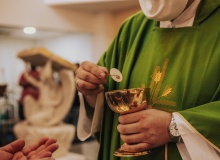
Eucharist has been elevated to a primary identity-marker: practiced, taught, protected, abused, and used for various purposes, including extra-religious ones.
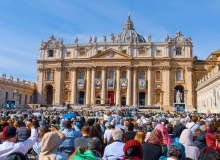
As a Jesuit, Pope Francis tends to use an equivocal style, a dubitative and incomplete form of argumentation, an “open” logic, a colloquial if not casual tone, and a pastoral trait which often lacks clarity and coherence.

The most interesting stories according to our readers include a French Minister, a British evangelist and an Olympics recordwoman.

A declaration of the Committee of Evangelical Teachers in Italy (CIEI) about the Global Compact on Education promoted by Pope Francis and signed by representatives of various religions.

Las opiniones vertidas por nuestros colaboradores se realizan a nivel personal, pudiendo coincidir o no con la postura de la dirección de Protestante Digital.